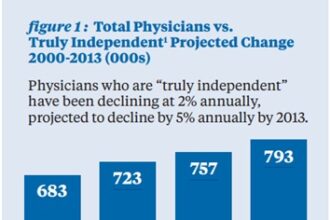For growing business and attracting new patients, your practice needs a mobile website that is optimized for various mobile devices. The Internet is changing the dynamics of business, and healthcare is no exception. Users can now access the Internet and social media for any kind of information, which wasn’t possible a few decades ago. Mobile phones, laptops, tablets, iPads and many other mobile devices are becoming increasingly popular at a rapid pace. As mobile usage continues to grow, this trend is gaining more momentum. According to industry reports, soon more web browsing will be done on a mobile device than a desktop computer. Google Think reports that about 61 percent of people use mobile phones while at home, 27 percent at work and about 16 percent while in a doctor’s office. Google analytic trends project that about 30 percent to 50 percent of website traffic can be attributed to mobile phones and tablets. It’s obvious that users won’t return to a website if it doesn’t load properly on their mobile devices. To provide the users an optimal user experience, irrespective of whether they use a laptop, a desktop computer, any smartphone device or a tablet, healthcare providers need to ensure that their website has a responsive design and adapts to the screen size, regardless of the device on which it is viewed. It high time to take a step forward for being more easily accessible to your patients, anytime and anywhere in the world by having a mobile version of your website. It can help you develop a positive online reputation and stay ahead of competition. Some other ways in which a mobile website can help you get noticed online are: Mobile websites enable quick browsing Mobile websites offer a convenient experience as they are designed to adapt quickly to the touch-screen navigation of smartphones or mobile devices. Despite of the screen size of the mobile device, mobile websites allow visitors to read specific information more clearly. Users can access different sections of the website more quickly on a mobile website version than on a nonresponsive website. Better SEO and local area visibility Mobile websites are easier for crawling and indexing. The content layout is better, so these automatically rank higher in search engines. Mobile websites are well-suited for online marketing, as well. More and more people are using their smartphones to get access to health information and for conducting searches about healthcare providers. Through a mobile website, it becomes a lot easier to provide information to “mobile information consumers” and get patient conversions. Provide an improved user experience Internet surfing through mobile channels opens up other extensive features such as push notifications, SMS, geo-location and preference settings. Along with all these features comes the most convenient side – the ease of using mobile applications and Internet services whenever, wherever and however users wish to. The ever-increasing sophistication and development of smartphones will continue to drive this change further. A well-designed mobile website can provide a smooth experience to anyone visiting your website, and a potential patient may consider booking an appointment if he/she is satisfied with the information viewed on the mobile device. Tap a large social media audience A large number of users engage in social media interactions through their mobile phones/devices. Social media marketing is an essential component of any physician’s online marketing strategy. While using social media, people share content with friends, family and peers. For effective content reach, it should be easily accessible to anyone clicking on it. A mobile website can facilitate a smooth reading experience for readers and help tap patients from social media. The marketing power of the Internet is growing exponentially, and having a mobile-friendly website is no longer just good practice but has become a prerequisite. The mobile clicks on your website will definitely have a profound impact on your appointment book.









